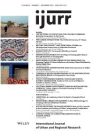The article focuses on the coping strategies of three categories of people usually considered to be at risk of becoming socially excluded — single mothers with minor children, long‐term unemployed males and foreign immigrants — in the northern Italian city of Milan. The concept of social exclusion, often used as an alternative to the concept of poverty, occasionally as its synonym, is here intended as multidimensional, dynamic and, most of all, relational. The article shows how this concept can be useful in analysing the condition of the three categories of people and how their condition is strongly related to the constraints and resources offered by the local context. Through the empirical material gathered from in‐depth interviews with the three above‐mentioned categories of people, the article first shows how these people profit from the labour market and the social services available in the city. It then analyses the role of social networks and the mechanisms behind the mobilization of people in support of the interviewees. Finally, it deals with the subjective dimension, that is, it examines whether, and to what extent, interviewees express feelings of uselessness. A visualization of the strategies will also be proposed. The empirical material will help to understand whether these people are socially excluded or not, and in which sense.
Details
Written by:
ALBERTA ANDREOTTI
Digital Object Identifier (DOI)
10.1111/j.1468-2427.2006.00669.x
About DOI
Read full article as PDF
Read full article as HTML
See the references for this article
